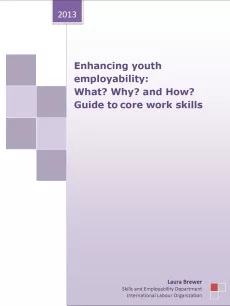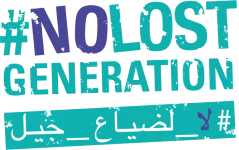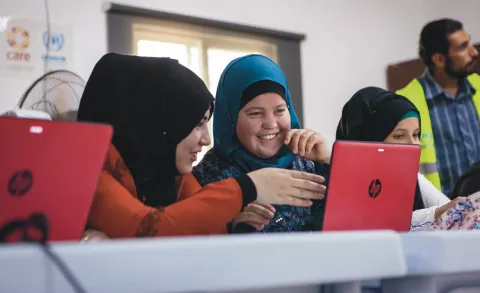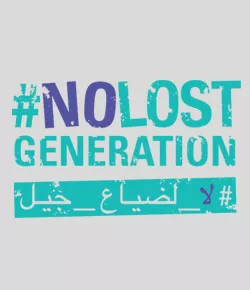Enhancing youth employability: what? why? and how? Guide to core work skills
Laure Brewer, ILO
Highlights
Skills have become increasingly important in the globalized world. Vocational and technical skills are essential, but employers are seeking applicants with more. They want employees who can continue to learn and adapt; read, write and compute competently; listen and communicate effectively; think creatively; solve problems independently; manage themselves at work; interact with co-workers; work in teams or groups; handle basic technology, lead effectively as well as follow supervision. These core skills for employability are both important to employers’ recruitment and enhance an individual’s ability to secure a job, retain employment and move flexibly in the labour market as well as engage in lifelong learning.
Employability entails much more than the ability to get that first job. It is having the capacity to network and market oneself, navigate through a career and remain employable throughout life. It requires the ability to ask questions, acquire new skills, identify and evaluate options, understand rights at work including the right to a safe and healthy work environment, adapt successfully to changing situations and the courage to innovate.
This paper is designed to guide readers through the key issues in identifying the relevant core skills for employability, understanding their importance and ways these skills can be delivered, attained and recognized. An ILO review of numerous teaching methodologies and training techniques demonstrates that acquiring such skills requires innovative ways of delivering training, so that core skills go hand in hand with technical skills. This guide illustrates various ways of integrating employability skills into core academic content and vocational training, rather than providing a “core skills curriculum”.



